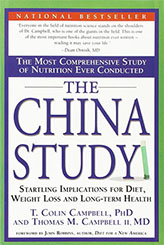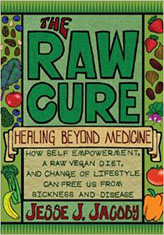
The Health Benefits of Lemons
Lemons were thought to have originated some 2,500 years ago in China or India, but it wasn't until the Crusaders introduced them to Europe that we got to fully appreciate the refreshing, astringent fruit. It was Christopher Columbus that brought lemons to the Americas in 1493, where they have remained a firm favourite to this day.
Whilst a well known antioxidant, lemons were once famous for the prevention of Scurvy amongst sailors. Although today, we are more likely to celebrate the immune boosting benefits of lemons.
The major producers of lemons around the world are the United States, Spain, Italy, Israel, Greece and Turkey, these countries thankfully offer us lemons all year round, however, their peak season is around May, June and August.
Lemons are rarely eaten as a stand-alone fruit due to the tart, acidic flavour, but used more commonly as an accompaniment to other dishes, to bring out the flavours.
Lemons contain unique flavonoid compounds that boast antioxidant and anti-cancer properties. Compounds called Limonoids have been shown to help fight cancers of the mouth, breast, colon, stomach, lung and skin. Limonin is present in the form of limonin glucoside, the bio-availability of this compound means that limonoids have potent anti-cancer effects and may prevent cancer cells from proliferating.
Studies have shown that foods rich in vitamin c such as lemons offer protection against inflammatory arthritis, more specifically polyarthritis, where two or more joints are affected.
Lemon is an excellent stimulant to the liver and is a dissolvent of uric acid, which is associated with gout, diabetes and kidney stones. In fact, lemons can help to dissolve kidney stones, as well as offer help with digestion.
If you are following an alkaline diet, Lemons are an excellent fruit to add to your diet because although initially acidic, once consumed they are very alkaline-forming and therefore help to balance the body's pH.
What is the nutrient content of Lemons

A quick look at some of the vitamins and minerals and the role they play in our health.
Vitamin C
- Supports the immune system
- Increases iron absorption
- Protects cells from oxidating damage
- Helps reduce the risk of heart disease, including coronary heart disease and stroke
- Helps in the formation of collagen, carnitine, and catecholemines.
Pyridoxine - Vitamin B6
- Protects the immune system
- Maintains a healthy metabolism
- Helps to produce energy from food
- Promotes healthy hormones
- Maintains healthy cells
- Assists in the absorption of vitamin B12
- Improves neurological function
- Promotes healthy brain development
- Reduces premenstrual symptoms
- Helps to prevent atherosclerosis and heart disease
Riboflavin - Vitamin B2
- Helps to produce energy from food
- Antioxidant
- Helps to metabolise fats and protein
- Assists in the proper functioning of the nervous system
- Helps to synthesise vitamins B6 and folate
- Improves eye health
Copper - Mineral
- Helps to maintain blood volume
- Produces energy in your cells from carbohydrates
- Supports the building of strong tissue, including hair and nails
- Involved in the manufacturing of collagen
- Helps to maintain a healthy balance of cholesterol
- Assists in the prevention of premature ageing.
Pantothenic Acid - Vitamin B5
- Reduces stress and anxiety
- Turns carbohydrates into energy
- Contributes to a healthy digestive tract
- Helps to maintain a healthy nervous system
- Keeps skin healthy and has a moisturising effect
- Essential in the metabolism of fats, protein and carbohydrates
- Helps balance and lower cholesterol levels
- Can help in the process of liver detoxification
Folate - Vitamin
- Promotes brain development and improves functioning
- Promotes a healthy nervous system
- Decreases risk of various cancers, including breast
- Supports a healthy cardiovascular system
- Helps nervous system development in the fetus
- Assists in the production of red blood cells
- May reduce the risk of depression
Iron - Mineral
- Formation of red blood cells
- Supports healthy muscle function
- Helps in brain development
- Helps to regulate body temperature
- Supports a healthy neurological system
- Oxygen carrier


 Articles by subject
Articles by subject Recent Articles
Recent Articles






